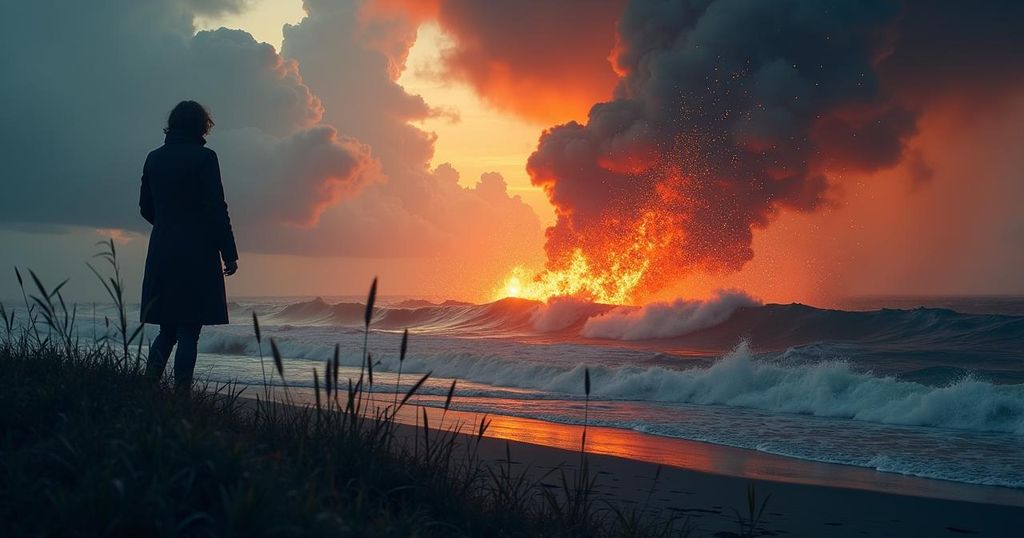Hurricane Helene Death Toll Reaches 200: The Deadliest Storm Since Katrina
The death toll from Hurricane Helene has risen to at least 200, making it the deadliest storm to impact the mainland U.S. since Hurricane Katrina. Recovery operations are ongoing in several affected states, with over 1.2 million customers without power. President Biden has deployed active-duty soldiers to assist in relief efforts, while legislative leaders push for Congressional action to address disaster-related needs.
As of Wednesday evening, the death toll from Hurricane Helene has tragically risen to at least 200 individuals, making it the deadliest hurricane to strike the mainland United States since Hurricane Katrina. Initially reported at 189, the toll increased following the confirmation of eight additional fatalities in Georgia and three in North Carolina, bringing the total to 200 by noon Thursday. Search and rescue operations remain active, particularly in the mountainous regions of western North Carolina, which experienced the most severe impact of the storm. Hurricane Helene brought catastrophic conditions, including storm surges, wind damage, and extensive inland flooding, affecting multiple Southern states, such as Florida, Georgia, South Carolina, North Carolina, Virginia, and Tennessee. In the midst of recovery efforts, President Joe Biden and Vice President Kamala Harris visited the affected region to assess the devastation and extend federal support for relief operations. “I am here to say the United States — the nation — has your back,” President Biden stated during his visit in Raleigh, North Carolina. “We are not leaving till you are back on your feet completely.” Helene made landfall as a powerful Category 4 hurricane in Florida’s Big Bend region, marking the strongest storm to ever impact that area. Recovery efforts are ongoing, but as of Wednesday afternoon, approximately 1.2 million customers remain without power across several Southern states. South Carolina reports the highest number of outages, followed by North Carolina and Georgia, while additional outages are noted in Florida, Virginia, and West Virginia. To bolster relief operations, President Biden has ordered the deployment of up to 1,000 active-duty soldiers to support the North Carolina National Guard. These soldiers are tasked with accelerating the delivery of essential supplies to isolated communities. In his address, President Biden emphasized, “Hurricane Helene has been a storm of historic proportion. My heart goes out to everyone who has experienced unthinkable loss. We are here for you — and we will stay here for as long as it takes.” Legislative leaders are also responding to the crisis, with a joint letter from Senate leaders including Chuck Schumer and Mitch McConnell urging Congress to convene to address the extensive needs arising from the disaster. They emphasized the urgency of legislative action to provide relief for those affected by the storm’s devastation.
Hurricane Helene has emerged as one of the deadliest hurricanes on record since Hurricane Katrina, drastically affecting multiple states across the Southeastern United States. The storm’s landfall in Florida as a Category 4 hurricane not only caused widespread destruction but also resulted in a significant loss of life. As recovery efforts unfold, the Federal Government is mobilizing resources to aid afflicted communities, and political leaders are calling for legislative action to address the pressing needs of those impacted. The storm’s aftermath highlights the ongoing challenges posed by natural disasters in the region.
In summary, Hurricane Helene has claimed at least 200 lives, making it the most lethal storm since Hurricane Katrina. The catastrophic destruction spread across multiple states necessitates comprehensive recovery efforts, federal support, and legislative action to address the needs of the affected populations. As recovery continues, the commitment from government officials underscores the importance of timely support for recovery and rebuilding efforts.
Original Source: abc11.com




Post Comment